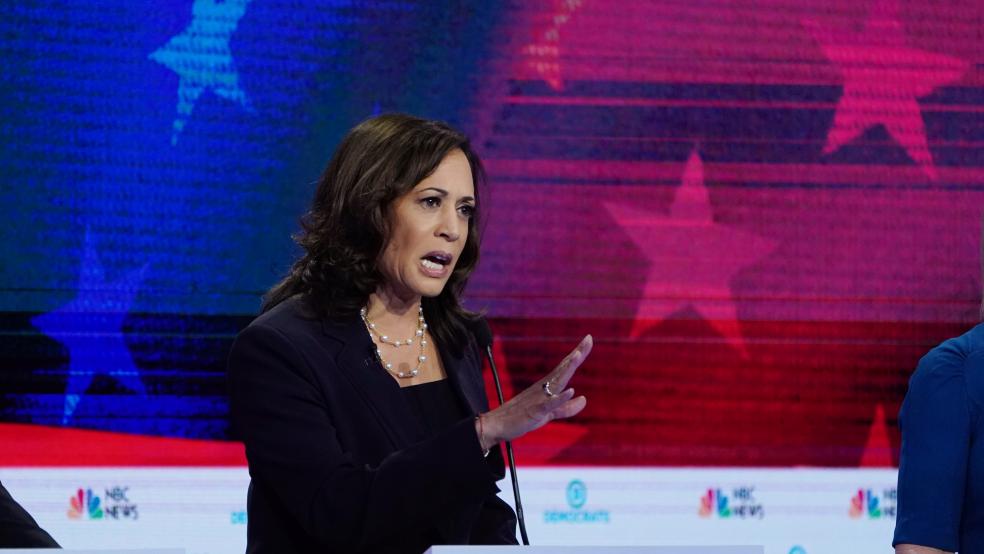Sen. Kamala Harris shook up the Democratic presidential primaries with her debate performance Thursday night. She’s widely seen as the clear winner from the second night of the debates, having created a standout moment by directly challenging former Vice President Joe Biden, the polling frontrunner, for his opposition in the 1970s to federal busing for school integration. She also scored points by effectively silencing a stage full of rivals talking over each other. “Hey, guys, you know what? America does not want to witness a food fight, they want to know how we are going to put food on their table,” she said, drawing applause.
But another Harris response is worth a bit of attention. Early in the debate, moderator Savannah Guthrie asked her whether she thinks Democrats have a responsibility to lay out how they will pay for every proposed expansion of government benefits, such as student loan cancellation, free college and health care.
Harris’s response:
“Well, let me tell you something. I—I hear that question, but where was that question when the Republicans and Donald Trump passed a tax bill that—that benefits the top 1 percent and the biggest corporations in this country, contributing at least $1 trillion to the debt of America, which middle-class families will pay for one way or another? Working families need support and need to be lifted up, and frankly this economy is not working for working people. … And on day one, I will repeal that tax bill that benefits the top 1 percent and the biggest corporations of America.”
Why it matters: It’s an answer — or a non-answer — that anyone following the fiscal debate since 2017 could have seen coming. Bill Hoagland of the Bipartisan Policy Center notes that the federal debt and deficits were never explicitly mentioned over two nights of Democratic debate. But Harris’s answer illustrates the extent to which many Democrats are now prepared to play offense on question of fiscal restraint, driven by their irritation over the hypocrisy of Republicans who, despite years of talk about the dangers of debt under President Obama, pushed through deficit-financed tax cuts as quickly as they could.
Not all Democrats are taking that approach — and progressives like Sens. Bernie Sanders and Elizabeth Warren still do say that their bold new benefit programs are fully paid for, often through higher taxes on the rich (though other analysts disagree about the extent to which the new costs are covered).
But Harris showed that many Democrats now stumping for their policy agenda will refuse to be swayed by deficit-shaming, whether by the GOP or the media. Progressives will applaud that shift. Fiscal hawks will decry it. Either way, it’s a sign of just how the GOP tax cuts have altered the debt debate.





